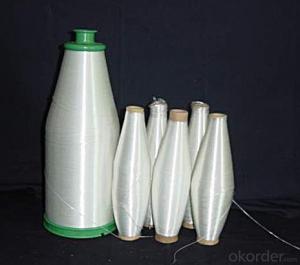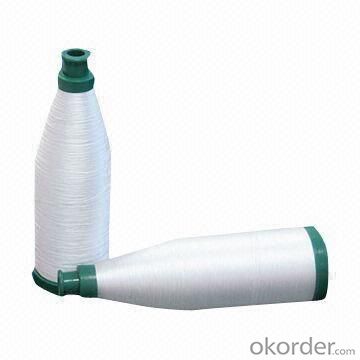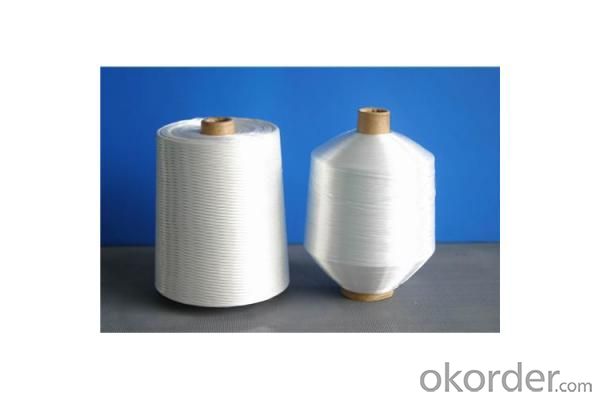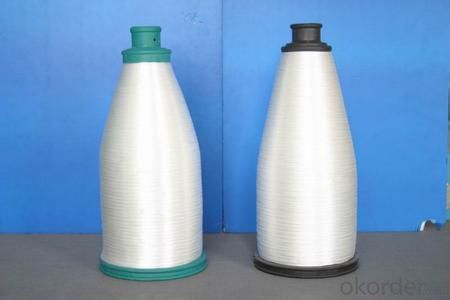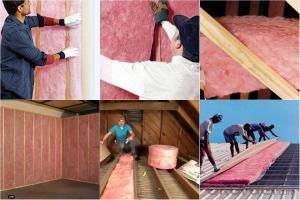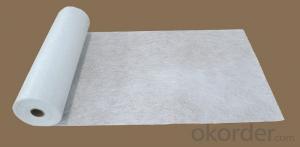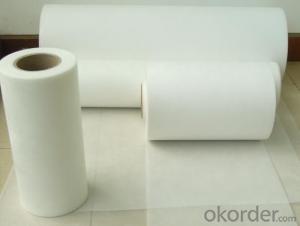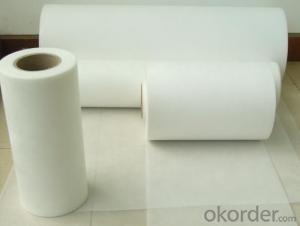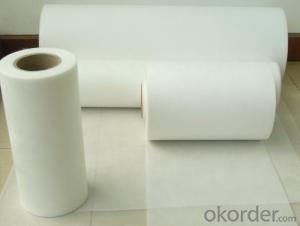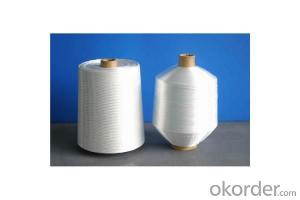Fiberglass Mat Tissue C Glass or E Glass Fiber Yarns for Electronic Usage
- Loading Port:
- Shanghai
- Payment Terms:
- TT or LC
- Min Order Qty:
- 20000 kg
- Supply Capability:
- 200000Kg Per Month kg/month
OKorder Service Pledge
OKorder Financial Service
You Might Also Like
1.Brief Introductions
C-or E-textile glass a kind of additional twisting and plying yam. With the characteristics of high strength, corrosion resistance, heat resistance and high moisture absorption, no-alkali yam has high electric insulation, so it used to produce weaved wires and cables’ wrap cladding, protection sleeve, train of mine, insulation materials of electric machinery, every yam of woven cloth and other industrial yam. It can also supply big and little paper cube and other cube yams with different shapes and different roll weight.
2.Product Features
Fiberglass yarn
Made from 4-9um fiberglass
Smaller:450g-600g/roll,Big:1.5Kg/ROll
Direction of Twist '' S ''
Consistent linear density
High filament tensile strength
Low fuzz No joint
Low cost with paper bobbin.
Application:
a.Applying for exterior wheel or veil wheel of automotive;
b.Applying for rubber reinforced products;
c.Applying for weaving all kinds of insulation and reinforcement: fabric,sleeve,tape,mesh, insect screen, sunshade fabric etc.
3.Product Specifications
Product Code | Tex | diameter (um) | Sizing. | breaking strength | Twist |
CC7.5-22-1/2 110S | 44 | 7.5 | paraffin | ≥15.5 | 110±10 |
EC9-33-1/2 65S | 66 | 9 | ≥24.1 | 65±5 | |
EC8-25-1/2 65S | 50 | 8 | ≥19.2 | 65±5 | |
CC9-33-1/2 65S | 33 | 9 | ≥20.6 | 65±5 | |
CC11-44-6/0 | 264 | 11 | ≥81.6 | ||
CC11-44-1/3 110S | 132 | 11 | silane | ≥40.8 | 28±3 |
EC9-68-1/0 28Z | 68 | 9 | ≥18.0 | 28±3 |
Special specification can be produce according to customer requirements.
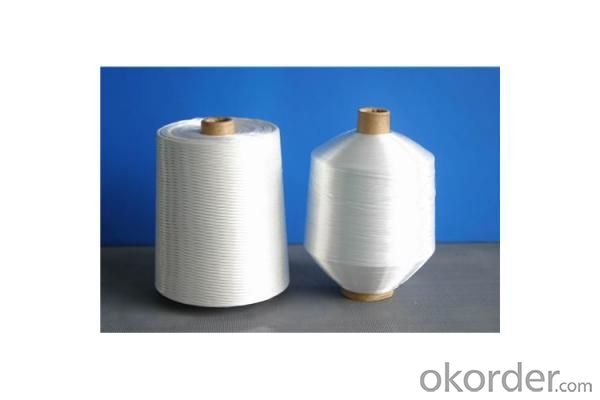
4.FAQ
Storage:
Unless otherwise specified,It should be stored in a dry, cool and rain-proof area. It is recommended that the room temperature and humidity should be always maintained at 15℃~35℃ and 35%~65% respectively.
- Q: Is fiberglass mat tissue chemically resistant?
- Yes, fiberglass mat tissue is chemically resistant. Fiberglass mat tissue is made from fine glass fibers that are randomly oriented and bound together with a resin binder. This composition allows the material to exhibit excellent resistance to a wide range of chemicals including acids, alkalis, solvents, and oils. It is commonly used in industries such as chemical processing, petrochemicals, and wastewater treatment where exposure to various chemicals is common. The chemical resistance of fiberglass mat tissue makes it a suitable choice for applications requiring corrosion resistance and long-term durability.
- Q: Can fiberglass mat tissue be used for making lightweight panels?
- Yes, fiberglass mat tissue can be used for making lightweight panels. It is often used as a reinforcement material in composite panels, providing strength and durability while keeping the overall weight of the panels low.
- Q: How does fiberglass mat tissue perform in terms of chemical resistance?
- Fiberglass mat tissue generally exhibits excellent chemical resistance properties. The material is typically made from glass fibers that are held together by a binder, and this composition allows for resistance to a wide range of chemicals. Fiberglass mat tissue is commonly used as a reinforcement in composite materials, such as fiberglass-reinforced plastics (FRP), due to its ability to withstand exposure to various chemicals without degrading or deteriorating. The chemical resistance of fiberglass mat tissue can vary depending on the specific type and quality of the material, as well as the specific chemical being encountered. However, in general, it is highly resistant to most acids, alkalis, solvents, and other corrosive substances. This resistance makes it a suitable choice for applications where the material may come into contact with aggressive chemicals, such as in chemical processing plants, water treatment facilities, or storage tanks. It is important to note that while fiberglass mat tissue is generally chemically resistant, it may not be completely impervious to all chemicals. Some highly concentrated or specialized chemicals may still have the potential to cause damage or deterioration over time. Therefore, it is always advisable to consult the manufacturer's specifications and recommendations for specific chemical resistance information before using fiberglass mat tissue in a particular application. Overall, fiberglass mat tissue is known for its strong chemical resistance properties, making it a reliable choice for applications where exposure to chemicals is expected.
- Q: What is the moisture resistance of fiberglass mat tissue?
- The moisture resistance of fiberglass mat tissue is generally quite high. The material is typically made from fiberglass strands that are tightly woven together, creating a dense and water-resistant surface. This makes it highly effective in applications where moisture exposure is common, such as in the construction industry for roofing, insulation, and waterproofing purposes. Additionally, fiberglass mat tissue is often treated with special coatings or additives that further enhance its moisture resistance, making it even more durable and reliable in wet or humid environments. Overall, the moisture resistance of fiberglass mat tissue is a significant advantage and contributes to its widespread use in various industries.
- Q: Is fiberglass mat tissue resistant to termites and insects?
- Yes, fiberglass mat tissue is generally resistant to termites and insects. Fiberglass is made from woven glass fibers, which are not a food source for termites or insects. Additionally, fiberglass mat tissue is typically coated with a layer of resin, which further enhances its resistance to pests. This makes fiberglass mat tissue a popular choice for construction and insulation applications in areas prone to termite and insect infestations. However, it is worth noting that while fiberglass mat tissue itself is resistant to termites and insects, it does not guarantee complete protection against infestations. It is always advisable to take additional measures, such as proper sealing and regular inspections, to ensure long-term pest control.
- Q: Can fiberglass mat tissue be used for repairing fiberglass kayaks?
- Yes, fiberglass mat tissue can be used for repairing fiberglass kayaks. It is commonly used as a reinforcement material in fiberglass repairs due to its strength and ability to conform to curved surfaces.
- Q: What are the typical roll sizes available for fiberglass mat tissue?
- The typical roll sizes available for fiberglass mat tissue range from 50 to 100 inches in width and can vary in length, depending on the manufacturer and specific product requirements.
- Q: Does fiberglass mat tissue have any fire-resistant properties?
- Fiberglass mat tissue indeed possesses fire-resistant properties. Its composition of glass fibers and a thermosetting resin inherently grants it fire resistance. When subjected to high temperatures or flames, fiberglass mat tissue resists ignition and combustion, instead hindering flame propagation and aiding fire containment. As a result, fiberglass mat tissue proves suitable for fire protection necessities in various applications, including insulation, fire barriers, and fireproof panels. Nevertheless, it is crucial to acknowledge that although fiberglass exhibits fire resistance, it remains susceptible to melting or burning in extreme circumstances.
- Q: How does fiberglass mat tissue perform in terms of moisture vapor transmission?
- Moisture vapor transmission is not a strong suit of fiberglass mat tissue. Its permeability to moisture vapor is extremely low, which effectively stops moisture from penetrating. This quality makes fiberglass mat tissue perfect for situations that demand strict moisture control and prevention, like in roofing and insulation materials. The limited moisture vapor transmission rate of fiberglass mat tissue aids in preserving the structure's integrity by averting moisture accumulation, condensation, and potential harm caused by mold or rot.
- Q: Is fiberglass mat tissue resistant to UV radiation?
- No, fiberglass mat tissue is not resistant to UV radiation.
Send your message to us
Fiberglass Mat Tissue C Glass or E Glass Fiber Yarns for Electronic Usage
- Loading Port:
- Shanghai
- Payment Terms:
- TT or LC
- Min Order Qty:
- 20000 kg
- Supply Capability:
- 200000Kg Per Month kg/month
OKorder Service Pledge
OKorder Financial Service
Similar products
Hot products
Hot Searches
Related keywords
